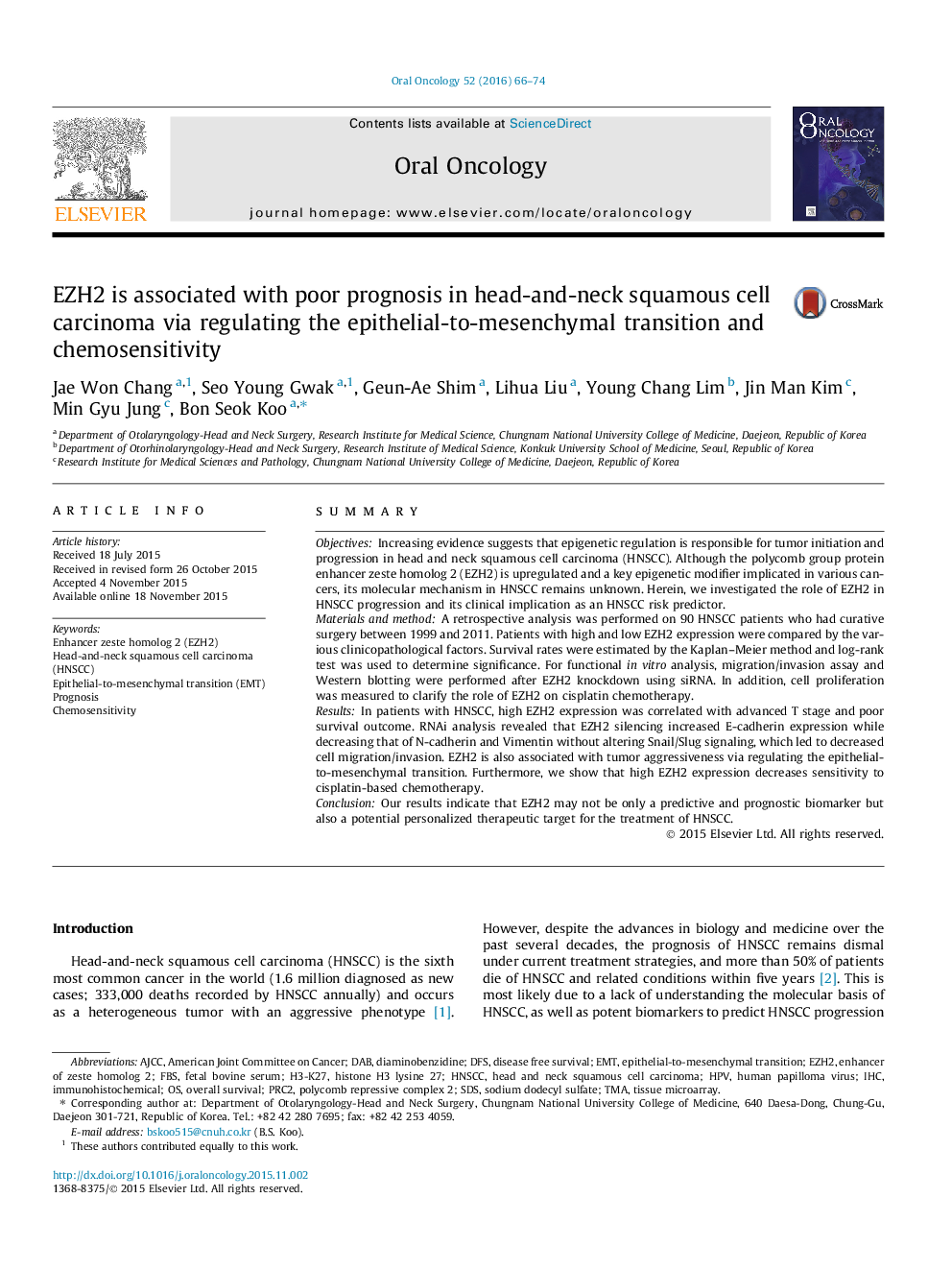| کد مقاله | کد نشریه | سال انتشار | مقاله انگلیسی | نسخه تمام متن |
|---|---|---|---|---|
| 3163822 | 1586258 | 2016 | 9 صفحه PDF | دانلود رایگان |

• EZH2 was variably expressed in HNSCC tissue/cells.
• High EZH2 expression associated with more advanced T stage and poor prognosis.
• EZH2 regulates the EMT of hypopharynx cancer cell in a Snail/Slug-independent manner.
• EZH2-suppressed hypopharynx cancer cell are more sensitive to cisplatin treatment.
• EZH2 level facilitate identification of patients at risk of progression, predict prognosis and response to chemotherapy.
SummaryObjectivesIncreasing evidence suggests that epigenetic regulation is responsible for tumor initiation and progression in head and neck squamous cell carcinoma (HNSCC). Although the polycomb group protein enhancer zeste homolog 2 (EZH2) is upregulated and a key epigenetic modifier implicated in various cancers, its molecular mechanism in HNSCC remains unknown. Herein, we investigated the role of EZH2 in HNSCC progression and its clinical implication as an HNSCC risk predictor.Materials and methodA retrospective analysis was performed on 90 HNSCC patients who had curative surgery between 1999 and 2011. Patients with high and low EZH2 expression were compared by the various clinicopathological factors. Survival rates were estimated by the Kaplan–Meier method and log-rank test was used to determine significance. For functional in vitro analysis, migration/invasion assay and Western blotting were performed after EZH2 knockdown using siRNA. In addition, cell proliferation was measured to clarify the role of EZH2 on cisplatin chemotherapy.ResultsIn patients with HNSCC, high EZH2 expression was correlated with advanced T stage and poor survival outcome. RNAi analysis revealed that EZH2 silencing increased E-cadherin expression while decreasing that of N-cadherin and Vimentin without altering Snail/Slug signaling, which led to decreased cell migration/invasion. EZH2 is also associated with tumor aggressiveness via regulating the epithelial-to-mesenchymal transition. Furthermore, we show that high EZH2 expression decreases sensitivity to cisplatin-based chemotherapy.ConclusionOur results indicate that EZH2 may not be only a predictive and prognostic biomarker but also a potential personalized therapeutic target for the treatment of HNSCC.
Figure optionsDownload high-quality image (103 K)Download as PowerPoint slide
Journal: Oral Oncology - Volume 52, January 2016, Pages 66–74